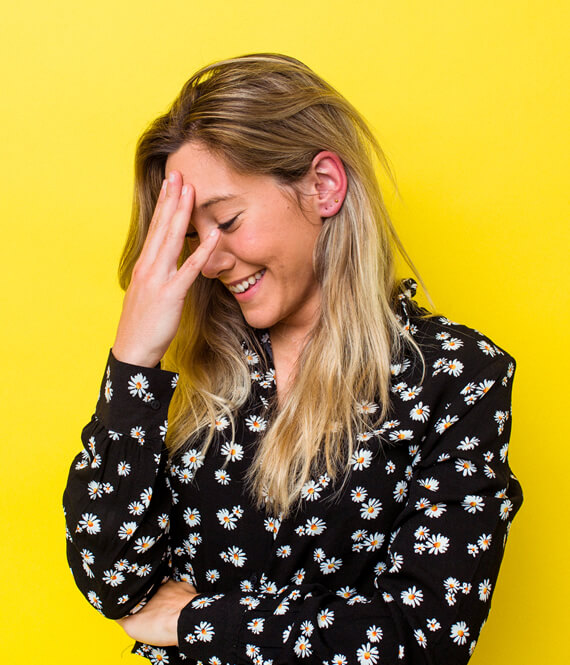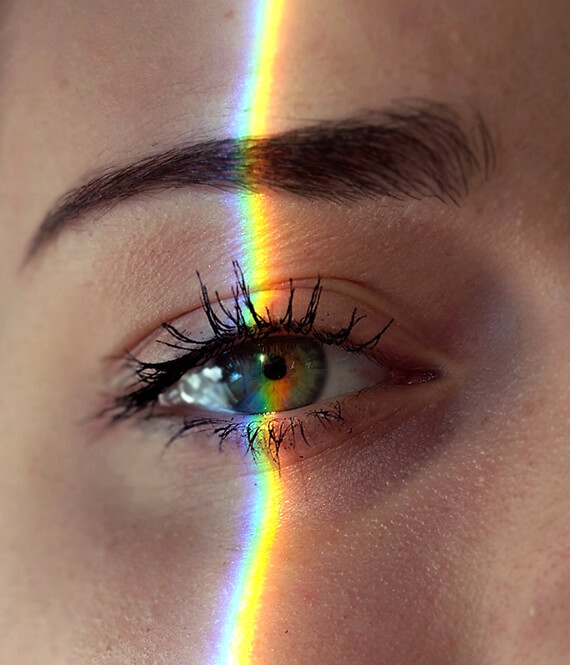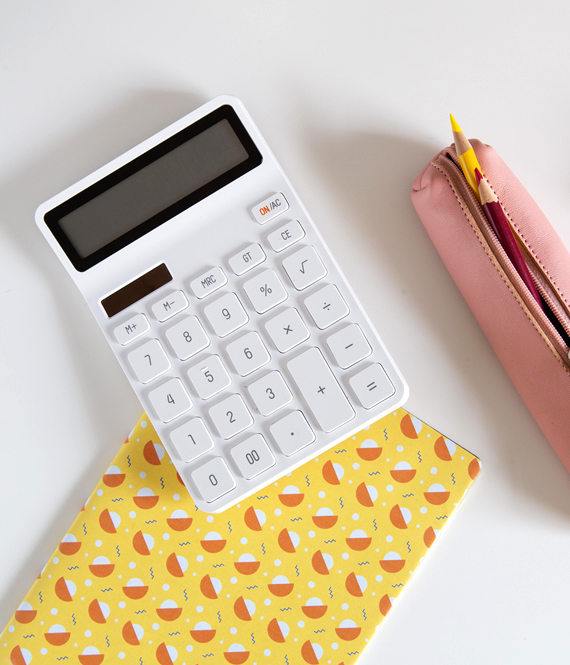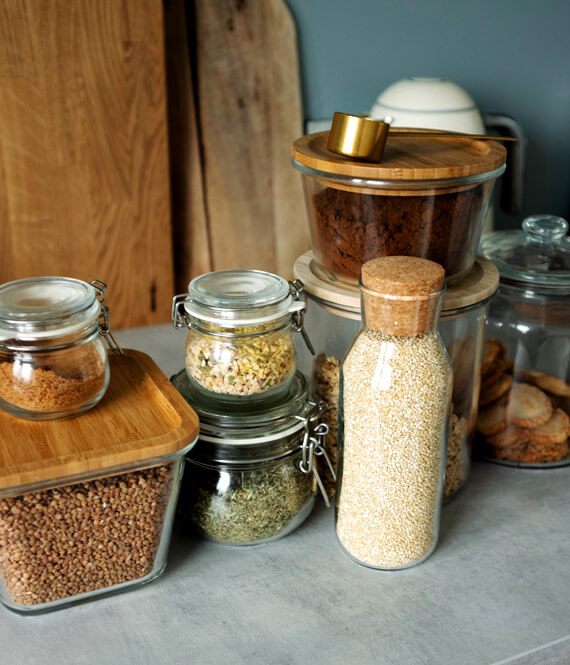
Alcohol And Anxiety: The Psychological Effects Of Drinking
We recommend helpful products in our articles. Read our full disclosure here. The content on this website is not intended to be a substitute for professional advice, diagnosis, or treatment.

Alcoholism is the most common addiction in the United States.
There are many people who struggle with substance abuse as well as mental health issues, especially with alcohol and anxiety.
While many use alcohol as a way to cope with anxiousness or stress, alcohol and anxiety don’t mix.
That’s because, in reality, alcohol is doing more harm to your mental well-being than good.
If you have anxiety and noticed that you might be becoming dependent on alcohol, it’s time to do something about it.
Let’s take a look at how drinking affects anxiety.
What Is Alcoholism?
Alcoholism is a substance use disorder and can sneak up on those who may not even believe that they have (or might develop) a problem.
From drinking socially to relying on alcohol to end the night, drinking patterns can escalate quickly.
In essence, people who struggle with alcoholism find it difficult to control their alcohol intake and undergo very strong and compelling cravings to continue to consume alcohol.
Due to the continuous alcohol consumption, they also often develop a tolerance which leads to them needing more and more alcohol to satisfy the cravings, an amount that regularly exceeds that of a recommended daily intake.
Such a relationship with alcohol can have far-reaching consequences on one’s physical, psychological, and social life.
Alcohol and physical ailments, alcohol and anxiety, alcohol and family – all of these combinations don’t sound like they’d mix very well.
Alcohol And Its Effects On The Brain
Alcohol affects many parts of your body – your stomach, liver, and heart, but it also affects the brain.
Due to how alcohol interacts with your brain, it can lead you to develop a physical dependence on alcohol.
One of the most common signs of it are the so-called shakes or tremors that people experience during alcohol withdrawals.
Alcohol alters your brain chemistry by increasing the levels of a neurotransmitter called gamma-amino-butyric acid (GABA) while simultaneously decreasing the levels of another neurotransmitter, known as glutamate.
GABA is the culprit behind the calm and euphoric feelings you experience after you’ve had a drink.
Glutamate, on the other hand, is responsible for excitability.
If you’re often under the influence of alcohol, your brain starts to readjust to that state by underproducing GABA and overproducing glutamate, to keep the levels of these neurotransmitters balanced.
If you continue to consume alcohol for long enough, your brain eventually recognizes this as its default state and continues to underproduce GABA and overproduce glutamate even when you haven’t had a drink.
This leads to a physical dependence on alcohol and withdrawals – your brain is trying to keep the neurotransmitter levels balanced.
Low levels of GABA and high levels of glutamate make you hyperexcited, anxious, irritable, and restless.
That’s the reason why those struggling with alcohol dependency experience the shakes or tremors when they haven’t consumed alcohol for a while – it’s a reflection of your hyperactive nervous system.
It’s also the reason why alcohol and anxiety are often a bad mix – GABA is crucial for regulating brain activity, specifically inhibiting the nervous system and promoting relaxation.
Low levels of GABA mean high and unregulated levels of excitability in your nervous system, which often translates to anxiety.

Alcohol And Anxiety
Along with side effects such as lapses in judgment, decreased motor skills, and mood swings, anxiety can also be a negative side effect of alcohol abuse.
The Anxiety and Depression Association of America (ADAA) states that 20% of those struggling with anxiety also engage in substance abuse.
Alcohol and anxiety are a bad mix, as is alcohol with any of the other mental problems, such as depression or personality disorders.
Anxiety affects personal, professional, and social lives, and it can become much worse with addiction.
Once you start drinking to cope with anxiety, your brain will literally begin remapping its coping pathways and determine that it can only stop being anxious after it’s had a drink, reinforcing your drinking habits.
To dive even deeper — when you struggle with both alcohol and anxiety, you have what’s referred to as a dual diagnosis.
A dual diagnosis is extremely common among all types of substances and mental health disorders.
Typically, though, you will want specialized alcoholism treatment options to overcome both issues simultaneously.
Alcohol is only a temporary relief for anxiety.
It’s sort of like a Band-Aid.
Eventually, you will have to face your stressors (in this case, anxiety) without the numbing effect of alcohol.
In fact, as mentioned previously, alcohol can actually worsen anxiety, and not only through physiological pathways.
For example, your family and friends may begin to notice your alcohol use, which in turn may increase the anxious feelings as you navigate the social tension.
Depending on when/how often you drink, this can lead to job loss, causing financial anxiety.
Alcohol And Social Life
We’ve already discussed how alcohol affects your physical and psychological wellbeing.
But how would it affect your social life?
First of all, it can really put a strain on your close relationships with family, friends, and romantic partners.
It may be hard to hold a meaningful conversation with someone who is under the influence, let alone make important life decisions.
Your social routines may differ, with social gatherings and activities on your side heavily revolving around alcohol consumption.
It can start to feel very isolating and lonely, and you may feel detached from your usual friend circle.
You may also find new friends who also enjoy indulging in alcohol, which in turn only reinforces your drinking.
Furthermore, alcohol consumption together with your close friends and family is often followed by domestic violence, conflicts, and communication crises.
But it’s not only your social life that might suffer – your professional life might too.
If you drink often, it’s likely you regularly experience hangovers and you have poorer sleep quality as well as decreased focus.
This can lead to you being frequently absent from work or not being able to perform your professional duties as well due to your reduced mental capabilities.
Misfortunes in your social and professional life can in turn lead to you experiencing even more anxiety in your day-to-day life.
Journey to Recovery
As discussed above, alcohol can have a significant impact on your life, especially if you already suffer from anxiety.
Because remember – alcohol and anxiety don’t mix well at all; often, alcohol only makes things worse.
And although figuring out how to resolve both diagnoses relating to alcohol and anxiety can feel daunting, it doesn’t have to.
Some of the best steps to take if alcohol and anxiety are giving you a bad time are:
- Confide in a close friend or family to build your network of support and have someone to hold you accountable.
If you’re struggling with alcohol and anxiety, getting a good and strong support circle might prove to be very beneficial. - Consider taking a leave of absence from work to focus on your health.
- Track your symptoms to determine how much you’re drinking and what’s triggering your drinking.
This will help doctors better assist you on your journey to resolve your alcohol and anxiety issues. - Meet with your doctor, or call a treatment center, to determine the healthiest way to get better.
Remember that your struggles with alcohol and anxiety should be treated as an illness, and should therefore require medical assistance (especially if you notice signs of physical dependence on alcohol). - Determine your insurance benefits so you know what type of financial support you may have.
Something as simple as typing “Cigna rehab facilities” into Google can put you on the right track. - Don’t give up! There are numerous options for treatment that can fit your needs and personality.
Whether you’re asking “does rehab work“ or if your local AA meeting is promising, you need to start somewhere.

So, while the alcohol may give you a temporary feeling of relief, the effects are just that: temporary.
Seeking help for struggles with alcohol and anxiety is a great way to make a change for the better.
Scroll down for more topics like this.
"We love to research problems, examine studies, analyze solutions, and share with you ideas that make life healthier. You can learn about us and our editorial standards here. Have suggestions or feedback to share? Send us a message!."













Leave a Comment